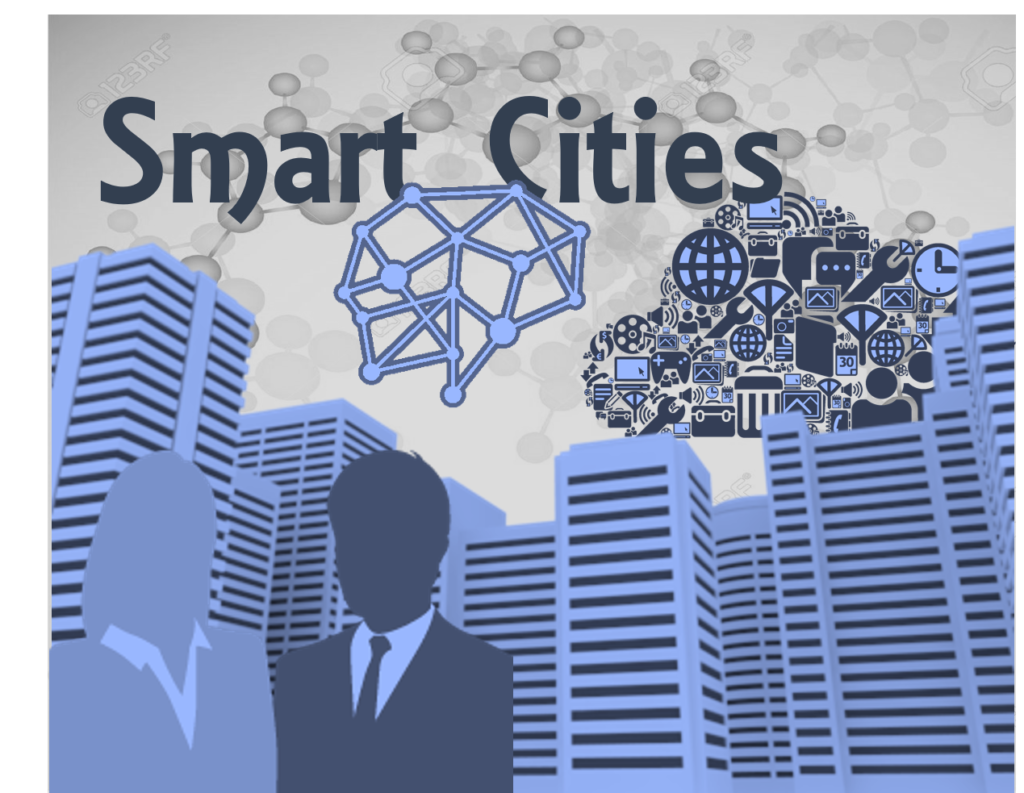In the business world, executives know that to be successful they need to blend the right combination of people, processes, and technology. The same holds true for smart cities (although I would add “smart policies” as a fourth factor on which to focus). Every discussion of smart cities should begin with people. After all, the primary objective of smart cities initiatives should be to make urban life better for people who live in metropolitan areas. To do that, systems need to operate effectively and resources need to be used as efficiently as possible. Too often, however, smart cities discussions focus on the technology. It seems almost inconceivable to me that someone would have to be reminded that cities — event smart ones — are all about people. Yet, David Roe (@druadh20), feels compelled to write, “In those hyper-connected, super-smart cities of the future, people are still destined to play important roles.”[1]
People
To be fair, Roe’s objective isn’t to remind us that people live in cities but to reiterate the importance of human participation in every aspect of city life. If people believe that technology is going to run smart cities autonomously they are in for a rude awakening. Roe explains, “According to Gartner Research Vice President Bettina Tratz-Ryan, the fate of smart cities hinges on the active involvement of people inspired to use information technology. Without these digital citizens, the cities cannot work, she said.” As I have noted in previous articles, many of the opponents of the smart cities movement believe that its emphasis on technology is going to make cities sterile and uninteresting places to live. They fear that technology will overpower cultural forces that have made cities vibrant and interesting and that data-driven decision making will dehumanize urban policies. To ensure that doesn’t happen, people need to be involved. Given that smart cities should be people-focused, leaders desiring to make their cities smarter need to concentrate on attracting people who can help them create user-friendly, sustainable, efficient, aesthetically pleasing, and livable environments. Roe calls these people “digital citizens.” He writes, “Karen Mossberger, author of Digital Citizenship, defines digital citizens as ‘those who use the Internet regularly and effectively.’ To qualify, a digital citizen must have extensive skills and knowledge in using the Internet with a variety of devices to interact with private and public organizations. … By any definition, Tratz-Ryan said, digital citizens are the keys to success for smart cities.” Although digital citizens may be required to help smart cities succeed, we should never forget that smart cities should benefit every citizen — rich and poor, old and young, technology efficient and technology challenged.
Processes
The more crowded our cities become the more imperative it is that we use resources wisely. Smart cities reach their full potential when citizens, services, systems, and organizations are connected in order to make cities more livable and efficient. Only when communication, energy, safety, security, water & sanitation services, and transportation function seamlessly, can cities offer their citizens a better quality of life and a flourishing economy. In order to do that, a holistic approach needs to be taken. In the past, urban systems have been run as separate entities. But a city is much like a living organism and can only run efficiently when all parts of the organism work in harmony. Cognitive computing systems are now available that can collect, integrate, and analyze data from throughout the city and help make sense of it all. A cognitive computing system is like the brain orchestrating how the parts of the body work together. The central nervous system of the smart city is going to be the Internet of Things (IoT). The folks at Datafloq add, “The age of big data and Internet of Things (IoT) is already underway, thanks to advances in technology and a proliferation of Internet-connected devices. These technologies have made it possible for governments and relevant local authorities to develop and roll out Smart City systems related to transport, water distribution, crime prevention, and traffic control.”[2] Brookings’ analysts, Adie Tomer (@AdieTomer) and Rob Puentes (@rpuentes), bluntly state, “No industry or household in the world, will reach their future potential without access to broadband, it is the electricity of the 21st century.”[3]
Technologies
In another article, Puentes and Tomer write, “Twenty-first century technologies offer newfound promise for the future of cities, more efficient resource usage, greater connectivity between people and places, and broader opportunity for all. They also promise a competitive and sustainable edge relative to other cities slow to adapt.”[4] The most important technologies are going to be broadband, cloud, cognitive computing, and the Internet of Things. The staff from Business Insider notes, however, that the lack of standardization could create a costly headache for cities as they try to get smarter. “One of the biggest challenges to the development of the IoT” the staff writes, “could make smart cities projects 30% more expensive to deploy, according to new analysis from Machine Research, an IoT and M2M market research firm. Right now there are no universal interoperability standards for the IoT that would allow different IoT devices from different manufacturers to communicate and share data with each other. The absence of such standards is already a major barrier to the smart home market, as consumers don’t want to buy smart home devices that can’t be controlled together.”[5]
Policies
It’s not just implementing technologies that are going to make cities competitive. Ed Skyler, Executive Vice President of global public affairs at Citi, reports, “Cities around the world are facing strains caused by massive population and economic shifts. One hundred million people are moving to cities every year and nearly 70 percent of the world’s population is expected to be urban by 2050. … Cities that position themselves for growth will emerge the strongest.”[6] City leaders need to put in place policies that attract industries. Urban employment, which already is a problem, will only get worse unless cities embrace new industries that can flourish in cities. Skyler suggests “there are three key things cities should do to be more competitive.” They are:
“First, cities are part of a network and they should share good ideas. Actually, they should not be afraid to steal good ideas. … Second, cities need to embrace risk-taking in order to innovate. Here is where the private sector can contribute. Public-private partnerships have accomplished many great things, but to me, the real value of private sector involvement is not measured in the amount of dollars. It’s about having the flexibility and freedom to try new ideas. In the private sector, risk-taking and innovation is expected by the public. But government is rarely a leader when it comes to experimentation and trying new ideas. The scrutiny on tax dollars makes governments reluctant to take risks. But that doesn’t mean this is how it has to be. Risk-taking by cities needs to be catalyzed, not constrained. … Third, there’s a huge demand for infrastructure in the world’s cities. The need has been estimated at $57 trillion dollars over the next 15 years. Here the private sector – more specifically, the financial sector – is critical to accessing the capital markets to make these projects happen.”
Politicians, citizens, and the private sector need to work together to ensure that the right policies are put in place so that everyone benefits as cities get “smarter.”
Conclusions
There are numerous and compelling reasons why cities need to get smarter in order to improve the quality of life for urban dwellers. Unfortunately, many challenges remain to be overcome before the true vision of a smart city can be realized. A holistic vision of urban transformation is necessary to make it a reality, but without standardization among smart systems and products, holistic implementation could be difficult.
Footnotes
[1] David Roe, “You Can’t Build Smart Cities With Dumb People,” CMS Wire, 30 March 2016.
[2] “The Benefits of Becoming a Smart City,” Datafloq, 13 November 2015.
[3] Adie Tomer and Rob Puentes, “Here’s the Right Way to Build the Futuristic Cities of Our Dreams,” Wired, 23 April 2014.
[4] Rob Puentes and Adie Tomer, “Getting Smarter About Smart Cities,” The Brookings Institution, 23 April 2014.
[5] BI Intelligence, “This one problem could cost smart cities hundreds of billions of dollars,” Business Insider, 10 May 2016.
[6] Ed Skyler, “3 Things Cities Should Do to Be Competitive,” City Accelerator, 14 September 2015.





